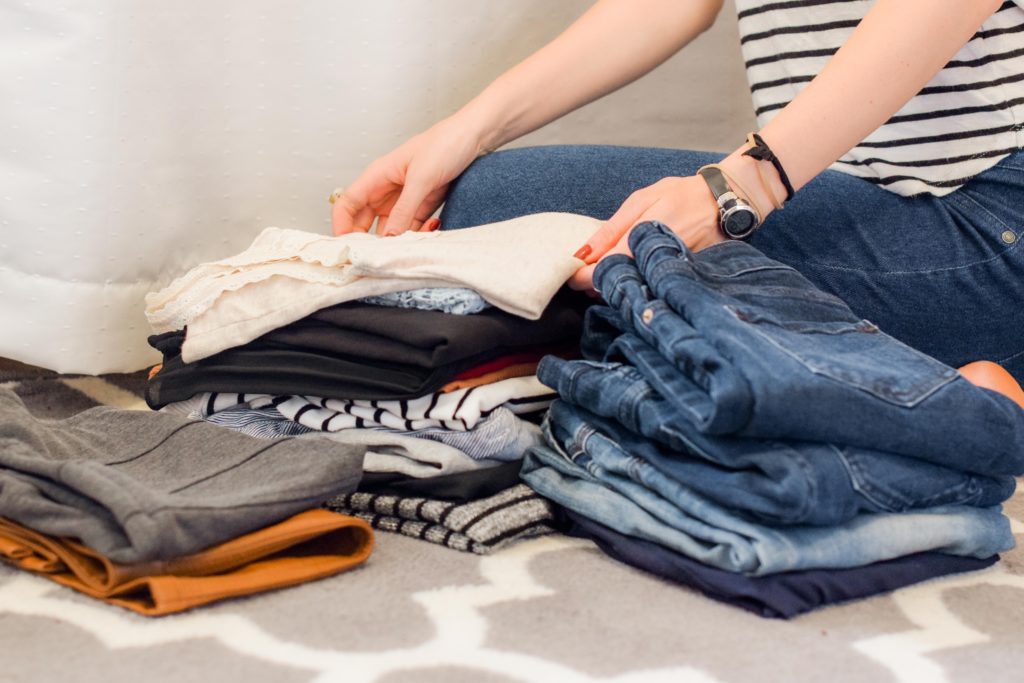By Samhitha Saiba
Like most young people, I have a lot of ambitions and a lack of funds to make them come true. Such is the life of a broke (or more accurately, on-a-budget) college student. But while there are plenty of resources on the Internet on how to sustain an affordable lifestyle from self-described food, beauty, and wellness gurus, we don’t talk nearly as much about how hard it is to dress well on a budget.
Sure, Target has a clothing section. And sure, most of us can still fit into some of the stuff we wore 5 years ago. But if you’re like me, you care just as much about dressing well as you do about getting dressed at all. Many of us have personal styles that brands such has Target do not always cater to, and most of us have tastes that have evolved as we have gotten older. Not to mention that going to USC — or going to school in L.A., period — can make us more self-conscious of the way we dress, as well as make it harder to look the way we want when every purchase feels like a sucker punch to our bank accounts. Most of us want to look good but just haven’t found an affordable, easy way to do it.
But in my experience, this ambition of ours doesn’t have to be fruitless. Clothing shouldn’t have to take up a huge portion of your budget, and there are plenty of ways to achieve the style you want while also staying fiscally conscious. While I’m personally still trying to perfect my system of doing this, I thought I’d share a couple of tips I have found useful along the way.
1. Avoid fast fashion (as much as possible)

Obviously, fast fashion is popular for a reason: it’s cheap. While avoiding cheap clothing may seem counter-intuitive to our mission of saving money, it can actually save you a lot in the long term. I learned the hard way that while clothes from brands like Forever 21 and H&M can seem like hidden gems — cute, cheap, and trendy — they’re usually made of cheap materials that shrink or show wear after just a couple of uses. This forces us to repeatedly restock our closet, but because we keep restocking it with cheap clothing, we fall into an endless, expensive cycle of buying clothes that don’t look that good after three or four wears, anyway.
I encourage you to look into brands that produce clothing from quality materials that will last you a long time. Some of my favorites at the moment are Levi’s and ASOS, but you can do research on which brands best suit your taste. While buying from these brands means you will have to be more careful where you spend your money, it will also help assure you that it was money well-spent.
2. Go thrifting

L.A. is a thrift-store hub, but most towns and cities will have some form of a second-hand clothing store. These stores can be great for finding both trendy clothing at a cheaper price as well as vintage items that you wouldn’t find elsewhere. And if you’re a sucker for oversized dad-sweaters like me, you’re pretty likely to strike gold.
Because there are now online thrift stores, you can even thrift without having to risk in-person shopping during quarantine. I personally use Poshmark when I want to thrift online, but thredUP and Depop are also popular options.
While thrifting can be rewarding and even fun, this method of shopping isn’t for everybody. Finding good clothes in a thrift store can sometimes take hours, and obviously not everyone’s schedule will allow this. Still, I encourage you to try thrifting at least once and figure out if it could fit into your lifestyle.
3. Scour other people’s closets

While this option might seem weird, it’s a great way to rediscover pieces that other people in your life may no longer have any use for. I personally do the occasional raid of my mom, dad, and sister’s closets, especially around when they’re planning to donate some of their older clothing. If you’re looking for very trendy or new-looking clothing, this might not be the best option. That being said, because 80s and 90s fashion are currently having a comeback, you might be able to find some pretty unique peices.
4. Upcycle what you have

If you’re creative and want to make the most of what you already have, I encourage you to try upcycling some of your clothing. Upcycling simply means taking old pieces and making them more applicable to your current tastes. This can be as simple as cropping an old tee shirt or taking in the waist on loose jeans. If you’re looking to take more creative risks, you could try embroidering a breast pocket, painting your white sneakers, or even whipping out a sewing machine and changing the purpose of a clothing item altogether. Recently, upcycling has become quite popular on Youtube and there are many videos out there explaining how to epicycle your closet from home. I recommend checking out Bestdressed on Youtube. I personally think she’s the current queen of upcycling.
That’s all the wisdom I have to offer on this subject. Hopefully these alternate ways of finding clothing that fit your taste will help you upgrade your closet just as I’ve used them to upgrade mine. Just remember that looking good doesn’t have to be expensive, even if this is what luxury brands may want you to believe. All a good fashion taste takes is a little bit of patience, cash, and the right amount of creativity. Oh, and I would recommend checking out Bestdressed on Youtube. Seriously.
Featured Image by freestocks on Unsplash
Samhitha is an undergraduate student studying English with an emphasis in Creative Writing. She is Indian-American but lived most of her life in New Jersey before recently making the transition to the west coast to attend USC. As an avid writer, she loves exploring different creative outlets through film, literature, and comedy. Aside from writing, she also loves exploring L.A., trying new boba places, and being around nature, whether that means hiking or simply visiting the beach with friends. Samhitha has basic understandings of Telugu and Spanish but is open to meeting with anyone who wants to improve their English. She is happy to help you in any way she can–whether that means going over essays, preparing for interviews, or simply practicing your conversation skills!







